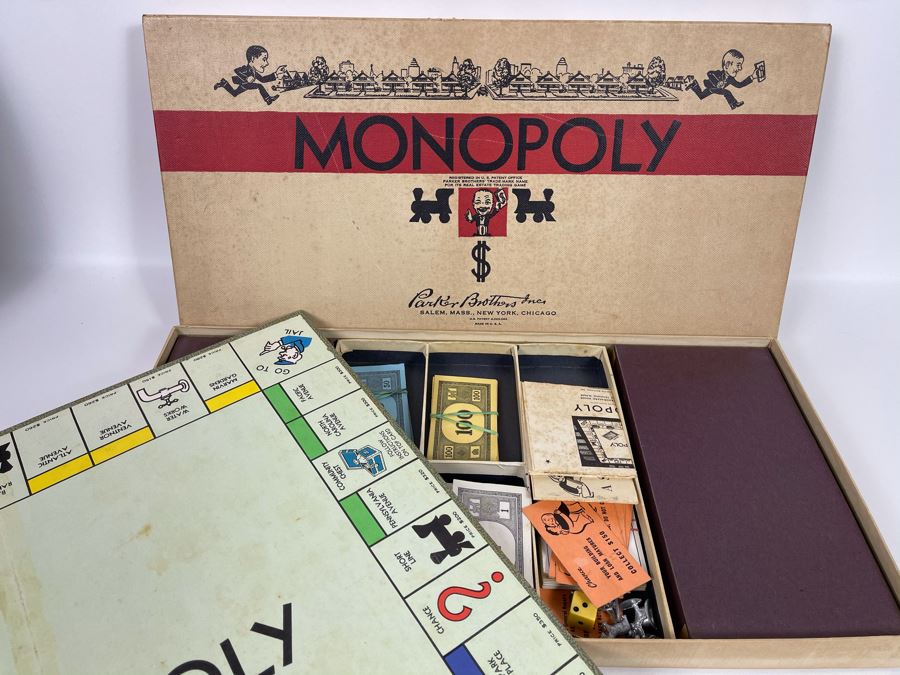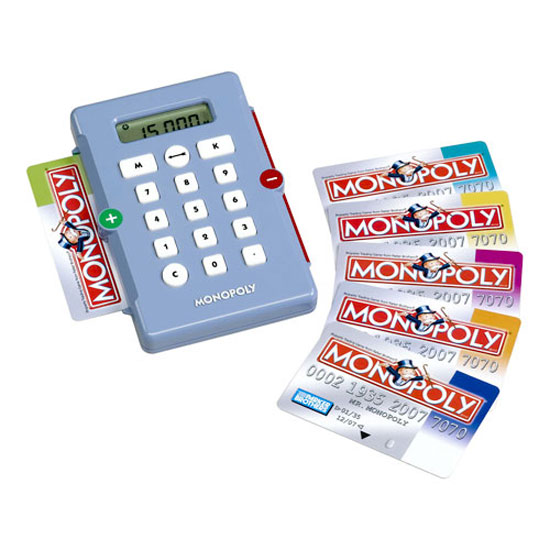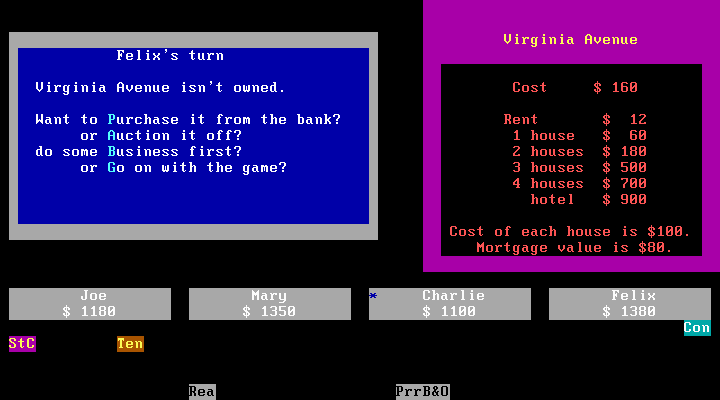As a kid, I always loved to play board games, even though my parents never really wanted to play them. One of the favorites was, of course, Monopoly. What kid wouldn't like this game, sculpted around (in some ways) the "American Dream"?
 |
| My family still has this edition somewhere, I hope. |
Many of those students brought the game home on breaks from school, and played it with friends and family, as it spread through the collegiate circuit. One woman changed the property names to streets in her hometown Atlantic City, and it founds its way onto the radar of a friend of a friend, Charles Darrow, who helped corral all the details into a clean commercial version.
There's a lot of drama, accusations, and lawsuits about what happened over the intervening years, but basically what happened is that Darrow patented his game, either unaware or unfazed of the patent owned on the earlier game, and then sold the rights to the Parker Brothers game company. They started publishing the game, and it became a phenomenon. They the later learned of the previous patent, and bought the rights to the earlier game to try to tie up any loose ends. Because it wasn't the digital era, however, more information came to light decades later, but the Darrow game has still endured these challenges.
Enter the digital era. People have been making computerized adaptations of the game, legally and otherwise, since the 1970s. My first exposure to the digital Monopoly world was a 1985 unlicensed shareware edition by Don Phillip Gibson.
Mostly text, except for a little bit of graphics for the game board, but using all 16 colors from the text mode in CGA. It was a very faithful adaptation, all the rules strictly enforced.But this game was fun. I pretended I was more than one person and played solo constantly.
I was never exposed to many of the subsequent releases, until I got my hands on a 1995 CD release.
Honestly, the gameplay wasn't much improved, except you could play against the computer now. And lots of 3D graphics, just because. Even though I still have this CD somewhere, I look for the shareware release instead if I want to play. Elevator muzak and forced 3D doesn't really work for me. (At the same time, I also got a copy of their CD rendition of The Game of Life. Again, the only real benefit to using the board is being able to play versus the computer.)
I guess the point I'm trying to make with this post is, while I consider myself open to new technologies, sometimes, we don't need it. Sometimes doing things the old ways is best. Honestly, as long as the players are able to be at the same table as me, I'd prefer to play with the game board instead. Although I have no problem with using a pen and paper to keep track of the money, instead of having to sort out all those darn bills.
 |
| Seriously, this was a lame idea. |
Somewhere in this rambling post is a point, and I suppose it can be summed up in a quote from Dolores Umbridge. When it comes to gaming, sometimes, “progress for the sake of progress must be discouraged.”






No comments:
Post a Comment